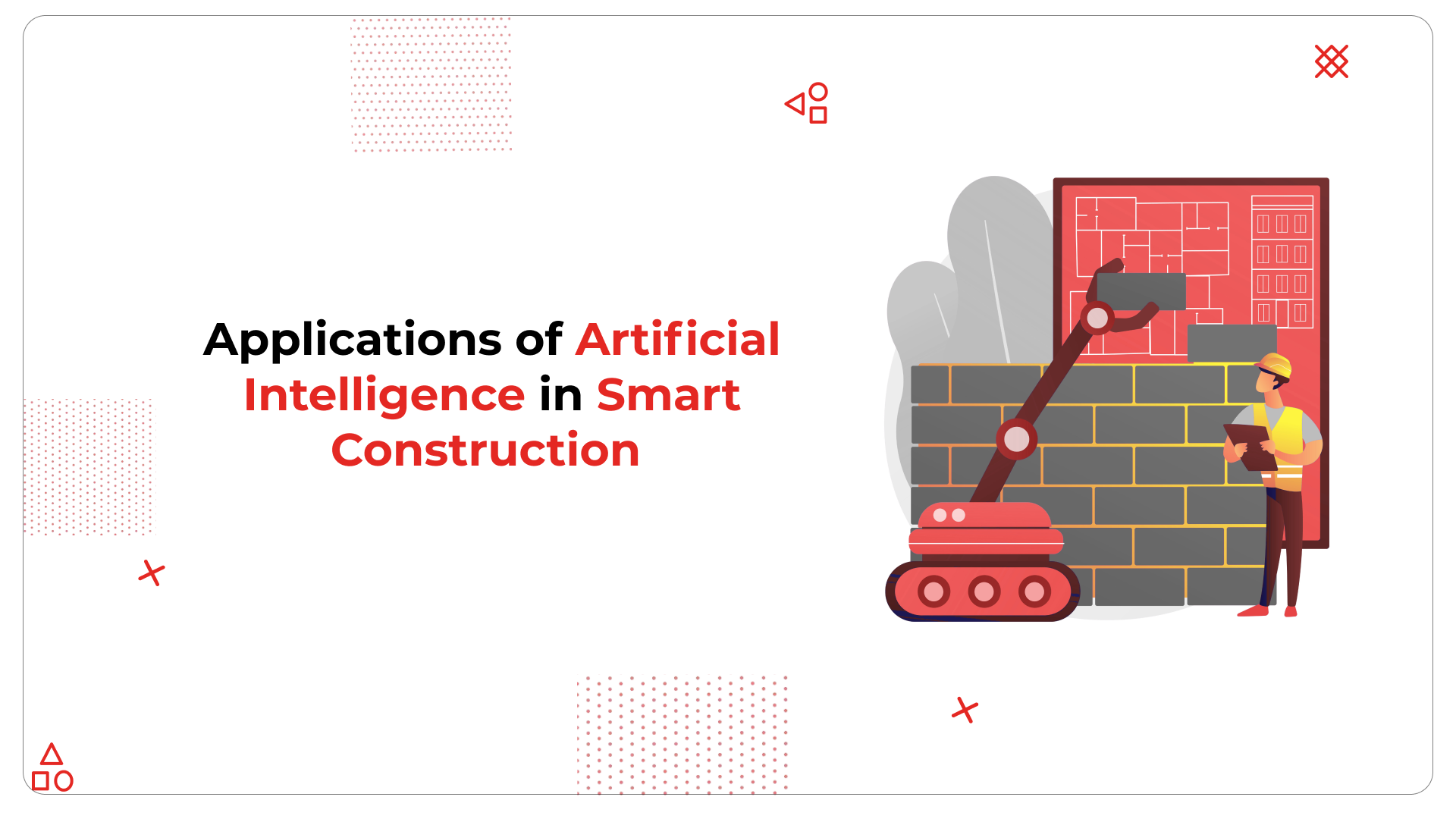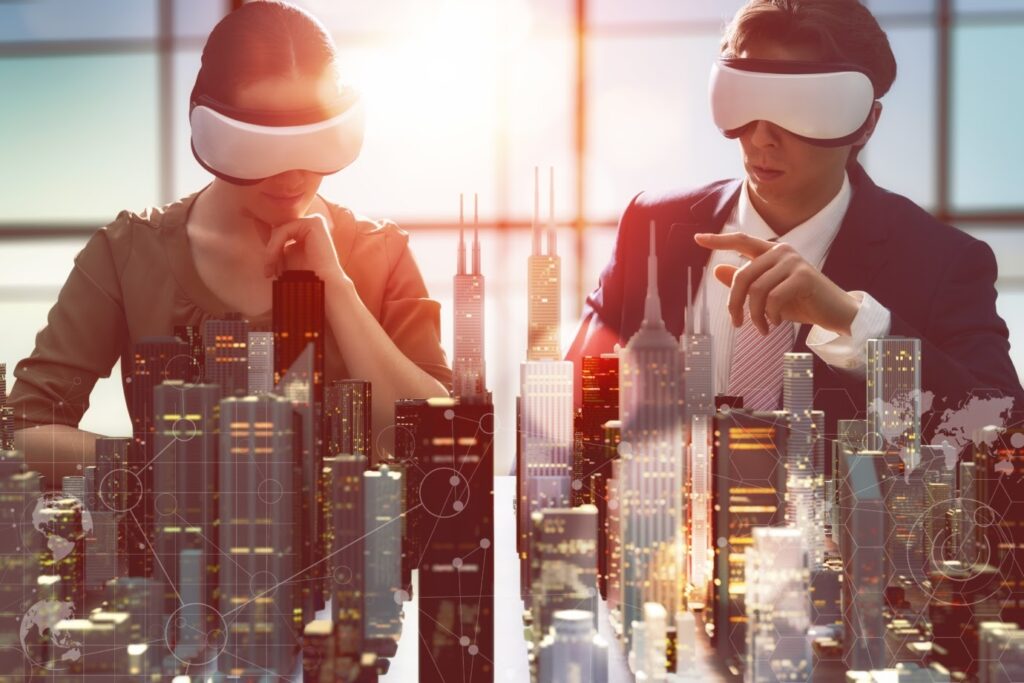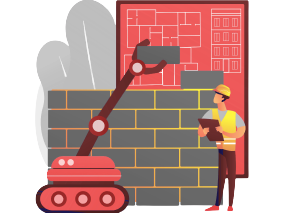
Applications of Artificial Intelligence in Construction Industry
- Mashood Kiyani
- 25 January 2022
Construction firms are adopting AI and machine learning as a smart way to digitize the industry. AI tools are pretty helpful within the construction industry as they assist in efficient and perfect planning, designing, and building and construction approaches. AI in construction is redefining the way of doing business across the industry.
AI and Machine Learning for Smart Construction
The potential applications of machine learning and AI in construction are substantial. Requests for facts, open troubles, and trade orders are standard inside the industry. Artificial Intelligence is like a clever assistant that could scrutinize this mountain of facts. It then alerts assignment managers about the vital things that require their interest. Several applications already use AI in this manner. Its benefits range from mundane filtering of spam emails to advanced safety tracking.

(Image credit: Media Raw Stock | Getty Images)
Applications of AI in Smart Construction
Risk Mitigation
Companies have commenced using AI and machine learning in an effort to reduce chance. Every construction undertaking is going via main or minor risks associated with high-quality, protection, time, and cost. General contractors take assistance from AI and machine learning solutions to display and prioritize risk on the development site. This allows the task group to focus their limited resources and time on the largest hazard factors and therefore mitigating dangers.
AI for construction safety
Construction employees are killed at the workplace five times more often than different laborers. According to OSHA, the leading reasons of private sector deaths (except highway collisions) inside the construction industry had been falls, followed with the aid of being struck by an object, electrocution, and caught-in/between. A Boston-based construction technlogy agency created an algorithm that analyzes pictures from its job sites, scans them for protection hazards such as workers no longer carrying shielding systems and correlates the snap shots with its accident information. The organization says it can probably compute risk rankings for initiatives so safety briefings may be held when an accelerated chance is detected. It even started out rating and releasing safety scores for every U.S. state based totally on COVID-19 compliance in 2020.
Prevent cost overruns
Most mega projects move over budget regardless of using the great project groups. Artificial Neural Networks are used on initiatives to predict cost overruns based totally on elements along with project size, settlement type and the competence degree of project managers. Historical statistics consisting of planned start and end dates are utilized by predictive models to check realistic timelines for future projects. AI allows the staff to remotely get admission to actual-lifes training material which allows them to enhance their abilities and expertise fast. This reduces the time taken to onboard new resources onto projects. As a result, assignment delivery is expedited.
How artificial intelligence is making construction safer and more profitable
Improved productivity
One of AI’s handiest programs in construction is its capability to eliminate data silos. An example of this is Spot-R, which lets crew managers see the actual-time location of workers on their 2D drawings and 3-d models. This information can be used for machine learning algorithms to tune productiveness and advise enhancements.

Smart assistants
The construction industry is notorious for being high-threat and occasional-margin, with a dire want for a funding in technology as a way to help improve productivity.AI brings to construction the potential to sift through hundreds of data points, automatically and immediately categorise and classify them, and highlight essential records on spend and risk to management.
Increased efficiency over the entire lifecycle chain
The construction industries are on the verge of digitalization, disrupting traditional processes and additionally holds many opportunities in store. Artificial intelligence is expected to boom efficiency in the course of the whole value chain – from the manufacturing of building materials to the layout, making plans and construction phase itself, and facility control as well.
The Future of AI in Construction
Robotics, AI, and the Internet of Things can reduce building prices by means of up to twenty percent. Engineers can don virtual fact goggles and send mini-robots into homes under construction, These robots use cameras to tune the work as it progresses. AI is getting used to plan the routing of electrical and plumbing structures in current buildings. Companies are using AI to expand protection structures for worksites. AI is getting used to track the real-time interactions of employees, equipment, and objects on the site and alert supervisors of potential safety issues, construction mistakes, and productivity problems.
Despite the predictions of big task losses, AI is not likely to replace the human staff. Instead, it’ll regulate enterprise models inside the construction industry, lessen highly-priced errors, reduce worksite accidents, and make building operations extra efficient.
Leaders at construction companies have to prioritize funding based totally on areas wherein AI will have the maximum effect on their business enterprise’s specific needs. Early movers will set the direction of the industry and gain benefit in the short and long term.
